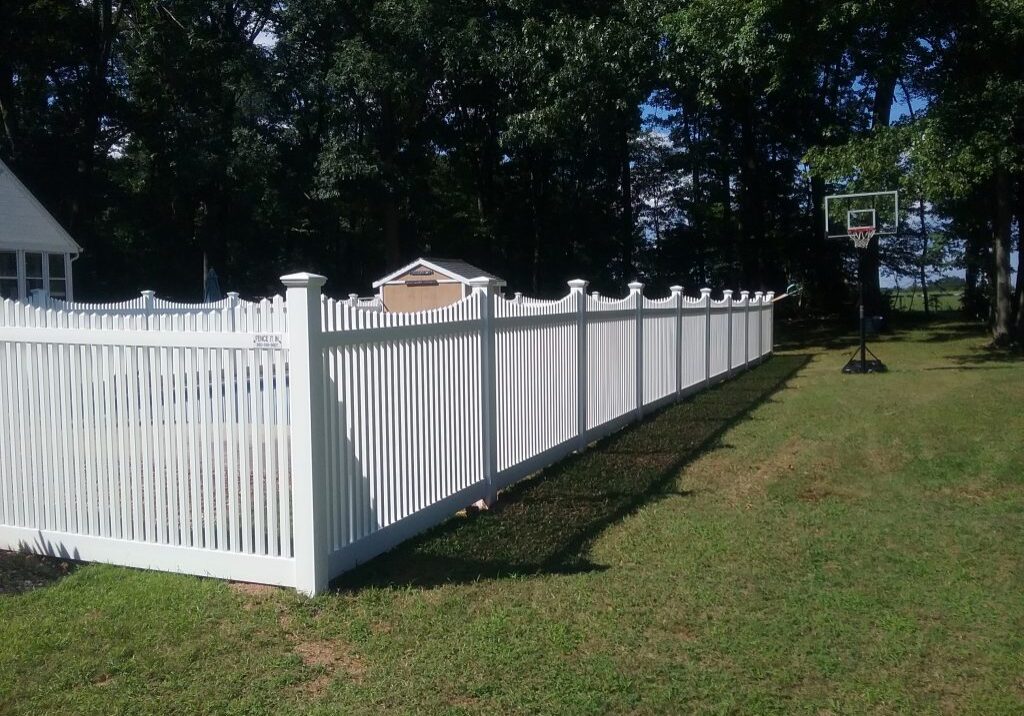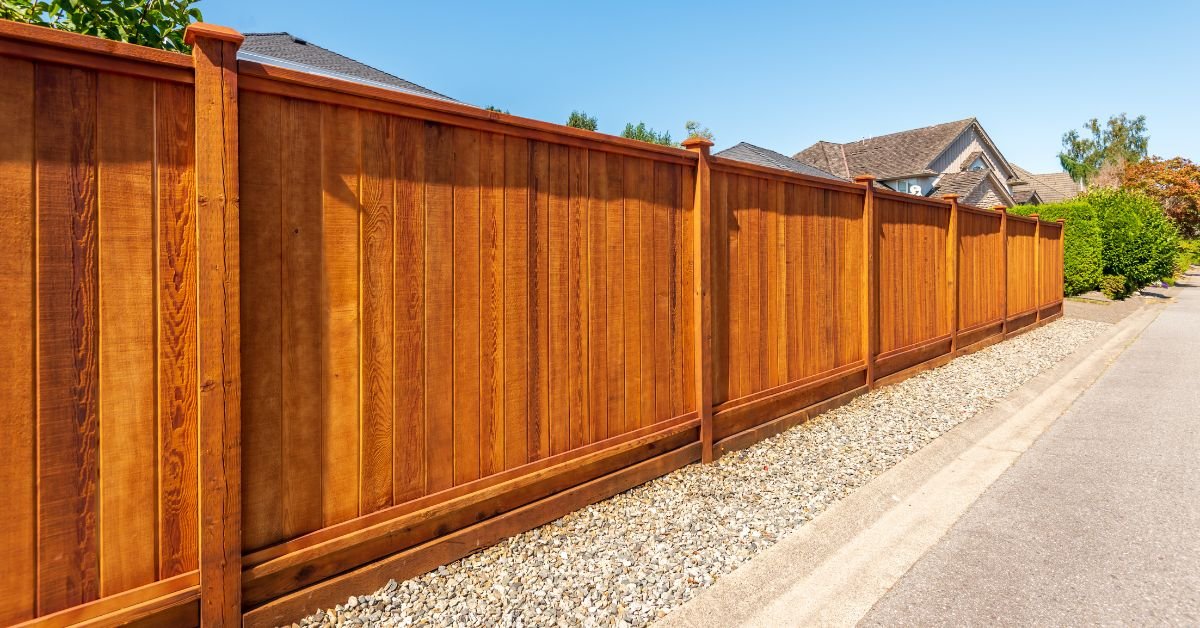All Categories
Featured
If you're taking into consideration mounting a fence around your building, comprehending the permit requirements in your area is necessary. While building a fencing might feel like a straightforward DIY project, numerous laws might control its building relying on where you live. Failing to acquire the proper licenses can result in fines, penalties, or also needing to get rid of the fence completely. In this overview, we'll break down the different permits you might require to mount a fencing and just how to guarantee your job stays compliant with neighborhood laws.
Why Are Allows Needed for Fence Setup? Permits are called for to guarantee that the fence you construct stick to regional building regulations, zoning laws, and security criteria. These licenses are in location to safeguard your residential or commercial property, the residential properties around you, and the environment. They guarantee that the fence won't block utilities, website traffic circulation, or produce threats for pedestrians. Additionally, they aid keep the aesthetic and architectural stability of your community.
![]()
Types of Permits You May Need. Building Authorization. A building authorization is one of the most common need for installing a fence. This authorization makes sure that the framework you build abide by local safety codes and policies. If your fence surpasses a specific height (usually around 6 feet), you may need to get a building permit. The local authorities will normally examine your plans to make certain that your fencing is risk-free and structurally audio.
Zoning Permit. Zoning regulations control land use in your location, and they typically manage where fencings can be set up, in addition to exactly how tall they can be. A zoning authorization guarantees that your fencing adheres to these laws. Your fencing could require to be established back a specific range from walkways or residential or commercial property lines. Zoning regulations can vary by area, so it's vital to check the specific rules that relate to your area.
Homeowners Association (HOA) Approval. If your building is component of a house owners association, you may require approval prior to mounting a fencing. HOAs frequently have strict regulations pertaining to the type, style, and materials made use of for fencings to keep a consistent look throughout the area.
Specialty Permits. Sometimes, you might require specialty permits based upon the area of your residential property or the nature of your fencing. For instance, if your building remains in a flood area, you may need extra permits to guarantee that your fencing does not block drain or water flow. If you plan to construct a fencing near an eco secured location, you may require a special license to abide with environmental policies.
![]()
Energy Easements and Energy Business Approvals. Prior to mounting a fencing, you need to check if your building has an easement. Constructing a fence within an easement might interfere with energy upkeep or damage underground lines.
How to Identify Which Permits You Required. Contact Regional Authorities. The primary step in determining the licenses required is to contact your neighborhood structure department or zoning workplace. They can provide particular details concerning what authorizations are essential for your area. Many cities have on-line sources or websites where you can examine the demands or even look for an authorization online.
Consult a Specialist Fencing Professional. A local fencing service provider is frequently aware of the permit procedure and neighborhood guidelines. They can aid you navigate the requirements and make certain that your task is certified. Many service providers likewise manage the authorization application process on your behalf, conserving you time and initiative.
Testimonial Your Area's HOA Guidelines. Make certain to evaluate their guidelines before using for any type of authorizations if you live in an area regulated by an HOA. The HOA might need details layouts, products, or height restrictions for fencings within the area. Send your plans to them for authorization prior to continuing.
![]()
Effects of Not Obtaining a License. Setting up a fencing without the required authorizations can lead to major effects. Prospective purchasers may be reluctant to purchase a home with an unpermitted fence, especially if it's in offense of zoning laws.
Conclusion. Before installing a fencing on your property, make certain you understand the neighborhood policies and get any kind of needed authorizations. Building authorizations, zoning licenses, HOA authorizations, and specialized allows all play a crucial function in making sure that your fence is secure, lawful, and compliant. Making the effort to research study and protect the suitable permits will certainly save you from costly blunders and prospective lawful issues in the future. Whether you're planning a privacy fence or an attractive limit, adhering to these steps will help make the setup procedure smooth and easy.
Why Are Allows Needed for Fence Setup? Permits are called for to guarantee that the fence you construct stick to regional building regulations, zoning laws, and security criteria. These licenses are in location to safeguard your residential or commercial property, the residential properties around you, and the environment. They guarantee that the fence won't block utilities, website traffic circulation, or produce threats for pedestrians. Additionally, they aid keep the aesthetic and architectural stability of your community.

Types of Permits You May Need. Building Authorization. A building authorization is one of the most common need for installing a fence. This authorization makes sure that the framework you build abide by local safety codes and policies. If your fence surpasses a specific height (usually around 6 feet), you may need to get a building permit. The local authorities will normally examine your plans to make certain that your fencing is risk-free and structurally audio.
Zoning Permit. Zoning regulations control land use in your location, and they typically manage where fencings can be set up, in addition to exactly how tall they can be. A zoning authorization guarantees that your fencing adheres to these laws. Your fencing could require to be established back a specific range from walkways or residential or commercial property lines. Zoning regulations can vary by area, so it's vital to check the specific rules that relate to your area.
Homeowners Association (HOA) Approval. If your building is component of a house owners association, you may require approval prior to mounting a fencing. HOAs frequently have strict regulations pertaining to the type, style, and materials made use of for fencings to keep a consistent look throughout the area.
Specialty Permits. Sometimes, you might require specialty permits based upon the area of your residential property or the nature of your fencing. For instance, if your building remains in a flood area, you may need extra permits to guarantee that your fencing does not block drain or water flow. If you plan to construct a fencing near an eco secured location, you may require a special license to abide with environmental policies.

Energy Easements and Energy Business Approvals. Prior to mounting a fencing, you need to check if your building has an easement. Constructing a fence within an easement might interfere with energy upkeep or damage underground lines.
How to Identify Which Permits You Required. Contact Regional Authorities. The primary step in determining the licenses required is to contact your neighborhood structure department or zoning workplace. They can provide particular details concerning what authorizations are essential for your area. Many cities have on-line sources or websites where you can examine the demands or even look for an authorization online.
Consult a Specialist Fencing Professional. A local fencing service provider is frequently aware of the permit procedure and neighborhood guidelines. They can aid you navigate the requirements and make certain that your task is certified. Many service providers likewise manage the authorization application process on your behalf, conserving you time and initiative.
Testimonial Your Area's HOA Guidelines. Make certain to evaluate their guidelines before using for any type of authorizations if you live in an area regulated by an HOA. The HOA might need details layouts, products, or height restrictions for fencings within the area. Send your plans to them for authorization prior to continuing.

Effects of Not Obtaining a License. Setting up a fencing without the required authorizations can lead to major effects. Prospective purchasers may be reluctant to purchase a home with an unpermitted fence, especially if it's in offense of zoning laws.
Conclusion. Before installing a fencing on your property, make certain you understand the neighborhood policies and get any kind of needed authorizations. Building authorizations, zoning licenses, HOA authorizations, and specialized allows all play a crucial function in making sure that your fence is secure, lawful, and compliant. Making the effort to research study and protect the suitable permits will certainly save you from costly blunders and prospective lawful issues in the future. Whether you're planning a privacy fence or an attractive limit, adhering to these steps will help make the setup procedure smooth and easy.
Latest Posts
Why Choose NAPA AutoCare? Montclare Auto Repair Explains Why
Published Apr 21, 25
2 min read
Expert Mechanic Services at Montclare Auto Repair - Don’t Wait, Act Now!
Published Apr 21, 25
2 min read
Need a Service Center Locally? Choose Car-X St. Louis for Expert Care
Published Apr 21, 25
1 min read
More
Latest Posts
Why Choose NAPA AutoCare? Montclare Auto Repair Explains Why
Published Apr 21, 25
2 min read
Expert Mechanic Services at Montclare Auto Repair - Don’t Wait, Act Now!
Published Apr 21, 25
2 min read
Need a Service Center Locally? Choose Car-X St. Louis for Expert Care
Published Apr 21, 25
1 min read